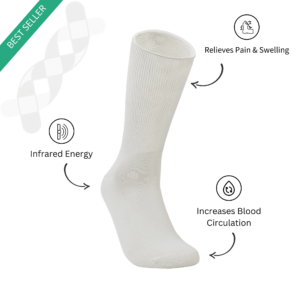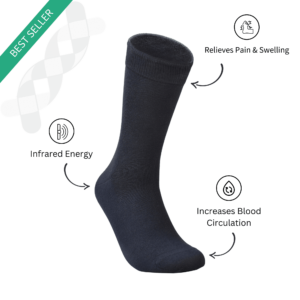We have discussed the importance of eating right and ingredients that keep your blood sugar under control with the right kind of food. What we often overlook is the importance of eating on time. Your body depends on a routine so that you can have fewer sugar spikes.
But why is it so important for you to eat on time? Won’t you be fine if you just eat well? Let’s find out in the article below.
3 Reasons Why Diabetics Should Eat On Time
If you aren’t regular with your meal times, here are some reasons why you should chart them out:
1. Proper Meal Times Ensures Better Sugar Regulation
Let’s say you had a light late-night dinner the previous night followed by a light early morning breakfast and a heavy mid-day lunch. What happens to your body?
Your body does not know what to expect. When it gets less food, your body goes into starvation mode and it may lead to an increase in glycogen converted glucose in the bloodstream. This, when followed by a heavy meal at lunch, the body works extra hard to store all the excess sugars.
When you have meals at the same time every day, your body falls into a routine. Right when there is a drop in blood sugar, you supply the body with the required amount of glucose, proteins, vitamins, minerals etc.
2. Medicine Works Better
Whether you are having oral pills or insulin, if you have your meals on time medicine also works its optimum best.
If you are eating too late, your body may be too starved and the same amount of medicine may lead to a drop in blood sugar. On the other hand, if you keep a small gap between your meals, your body may still be using the glucose from the previous meal and you may get high blood sugar.
By having your meals at the same time and with the same portion, the medicine is also accurate and works most efficiently for your body.
3. Better Sleep
Having meals on time prevents your blood sugar from fluctuating too much when it’s time for bed.
Irregular meal times or even skipping dinner can lead to tremendous blood sugar fluctuations in your sleep. The worst part is, since you are sleeping, you cannot take action.
Low blood sugar displays itself in the form of perspiration, bad dreams difficulty breathing, sleep apnea etc. While high blood sugar can make you feel hot and irritable. Both of these can ruin your quality of sleep and when you aren’t getting enough sleep, blood sugar management becomes even more challenging.
If you are diabetic, it is not only important to eat on time, but it is also important to eat similar amounts of carbohydrates, proteins and fats – and they should all come from healthy sources.
How Long Should A Diabetic Wait Between Meals?
Here’s something many people with diabetes are confused about. Especially because there are so many different theories around this topic. Some say that you should eat three times a day while others say that you should have smaller meals, 6 times a day.
Ideally, you shouldn’t stay on an empty stomach for more than 5 hours but apart from that, the number of meals does not matter as long as you are consistent with your timings and the size of every meal.
That being said, some people benefit from having smaller portions frequently throughout the day while others benefit from three moderate portions every day.
If you struggle to stop eating, or you are too busy to prep 5 – 6 meals a day, it is perfectly fine to have fewer meals as long as you.
Talk to your dietician about your routine and your challenges. They will chalk out a meal plan that is perfectly doable without taking up too much of your time.
Breakfast And Dinner Timings
The other important thing to talk about is your breakfast and dinner timings. Ideally, you should have breakfast (or your first meal) one hour after getting up, and your dinner (or last meal), 2 hours before going to bed.
It doesn’t matter if you have 3 meals or 5 meals in the day, and while you shouldn’t deviate a lot from your meal times throughout the day, it is crucial that you have your first and last meals on time.
Listen To Your Body
Lastly, your doctors will chart out your meal based on your dietary requirements but no one knows your body as well as you do.
Maintain a food journal. And chart out what you eat, when you eat and also when you are hungry. Check your blood sugar levels throughout the day as well.
If you see a pattern when you are hungry and when there is a sudden drop/rise in your blood sugars, you should talk to your doctor about it. Your doctor will help you change your routine or add a snack into your diet to avoid the momentary slump.
Having the right food is important, but if you don’t have your meals at the right time, you will see a rise and fall in your blood sugar – no matter how healthy your meal is.
So make sure you have your meals on time. You can set timers or use applications that help you manage your diabetes.
We hope this article was helpful. What do you do to make sure that you have your meals on time?




























